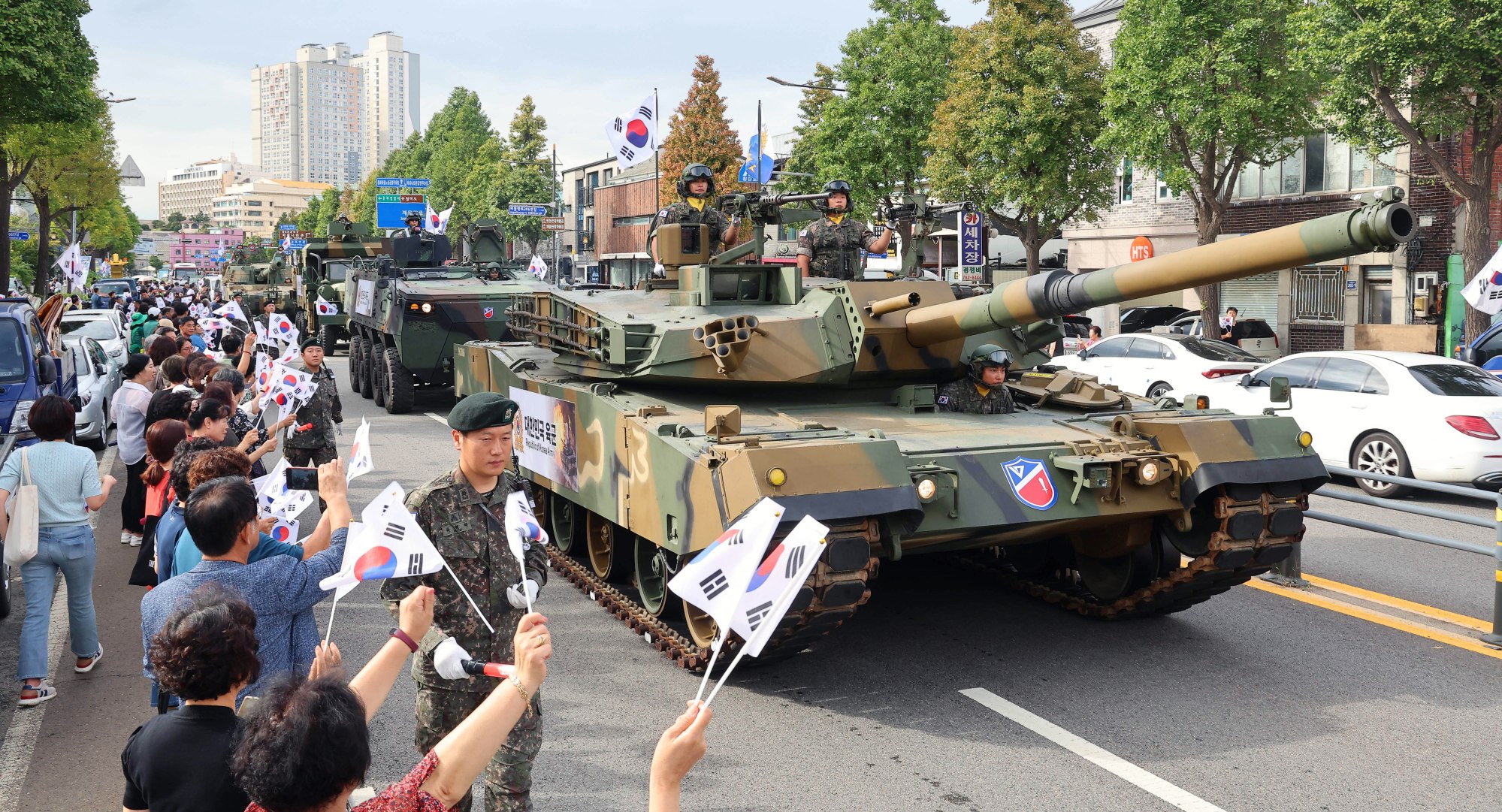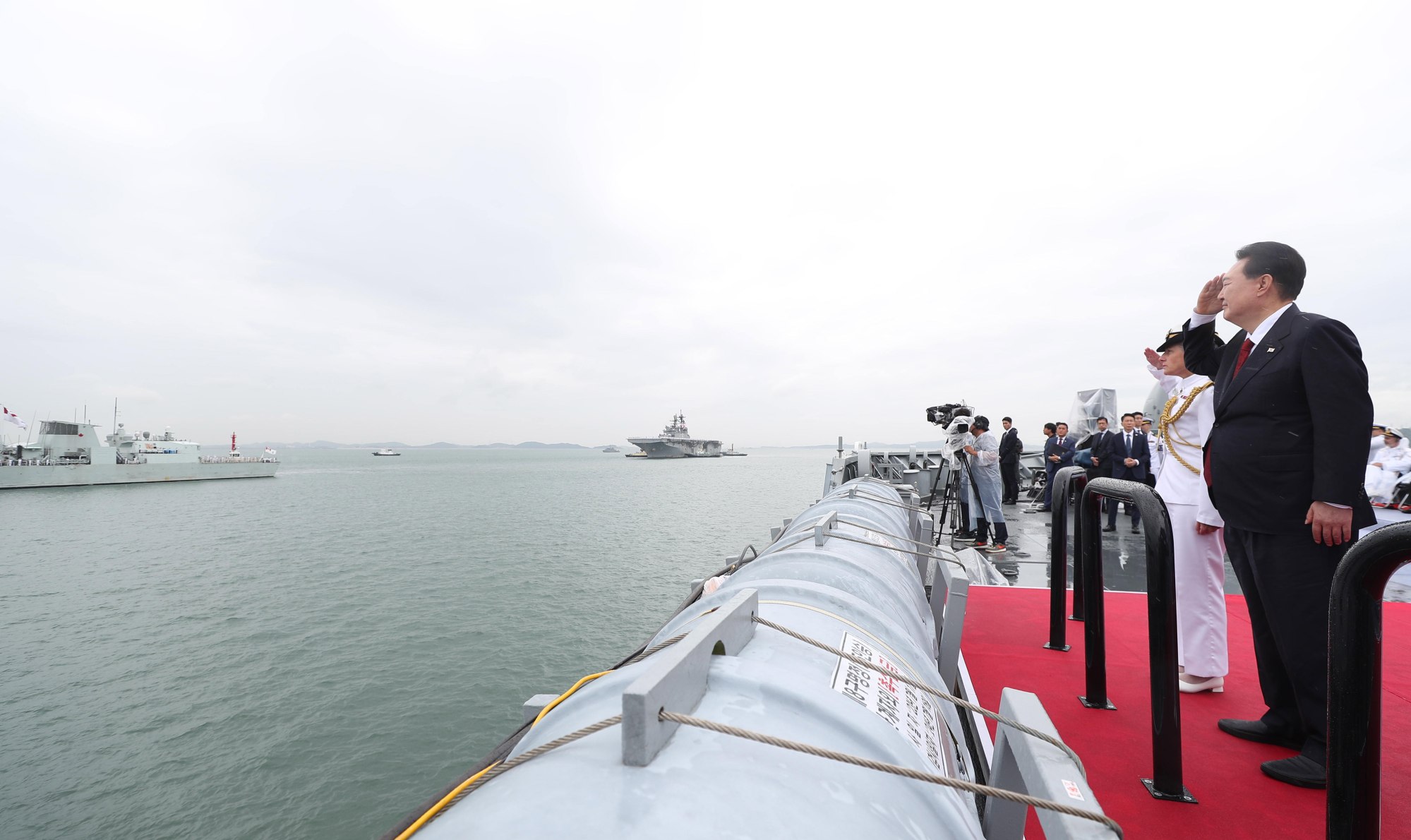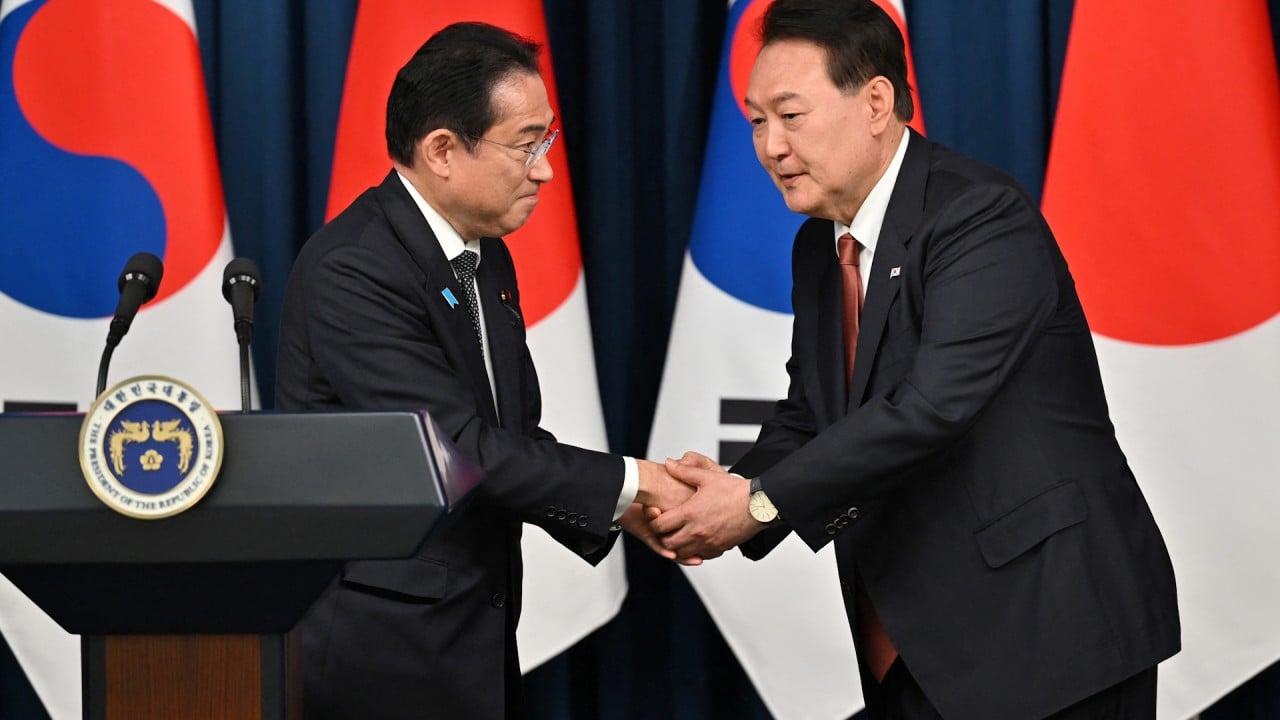
“The government must stop tainting history with political purposes,” warned the group, which includes key associations such as the Center for Historical Truth and Justice, and the Korean Historical Association.
The recent history row began from the government’s decision to relocate the bust of revered independence fighter Hong Beom-do from the Korea Military Academy in northern Seoul.
Four other busts of independence fighters who were active in the 1920s and 1930s, which are currently placed together with Hong outside the academy’s education centre, will also be relocated to a less prominent location in the academy.

Given Hong’s association with the Soviet Bolsheviks, the Korean Military Academy is an inappropriate location because the academy trains officers to fight the communist North, according to the government in justifying the relocation.
But historians argue that many independence fighters, regardless whether they were leftists or anti-communists, could only rely on the Soviet Union to continue with their missions during Japanese colonial rule of Korea in 1910-1945.
“This relocation amounts to reopening General Hong’s tomb and decapitating his remains,” the historians said in the joint statement.
They called on the Yoon government to apologise, especially to the 500,000 Korean descendants living in the former Soviet Union who still revere Hong.
Yoon steers South Korea away from China, Russia and towards US, Japan
Yoon steers South Korea away from China, Russia and towards US, Japan
The Kyunghyang newspaper said in an editorial on Tuesday that the controversy over the relocation of the busts stemmed from South Korea’s state identity, according to the Yoon government, being based on “anti-communism and pro-Japanese” policies.
It accused the government of buying into allegations by neoconservatives, known in South Korea as the New Right, that Japanese colonial rule of Korea helped modernise Korea with infrastructure, legal and educational reforms.
Yoon has also appointed staunch conservatives to key government posts, and his government has deleted burial records of General Paik Sun-yup who fought for the Japanese against Korean independence fighters in 1941-1945.
Paik is best remembered for defeating North Korea in the 1950 Battle of Tabu-dong during the Korean war. In 1953, he became Korea’s first four-star general at the age of 33.
At President Yoon’s speech on Liberation Day on August 15 marking independence from Japanese colonial rule, he said independence campaigns aimed to set up a “free democracy”, meaning a pro-US, rightist government.

He did not refer to the 1919 popular uprising against Japanese colonial rule, where the government in exile fought for independence from Japan, and of independence fighters’ battles against Japan.
These government moves and Yoon’s speech have sparked protests by opposition parties and the Heritage of Korean Independence (HKI), an association representing South Korea’s independence fighters and their descendants.
“Right-wing extremists want to erase public memory about anti-Japanese struggles by our ancestors as they want stronger ties with Japan,” said Kim Joon-hyung, former head of the Korea National Diplomatic Academy of the foreign ministry.
“This also fits with the US policy of closer ties with South Korea and Japan in the fight against China, Russia and North Korea,” he said.
Historical issues from Japan’s colonial rule, such as compensation for Korean victims who were Japan’s wartime sex slaves or mobilised workers, often hinder the US’ efforts to foster stronger relations between Japan and South Korea.
Professor Yang Moo-jin of the University of North Korean Studies said the history disputes come as Yoon and his supporters engage in an “ideology war” against what they call “anti-state forces”, accusing them of stirring up “anti-Japanese sentiments”.
These “anti-state forces” – Yoon’s opponents including the liberal opposition Democratic Party of Korea – are capitalising on resentment against Japan’s release of contaminated water from its crippled Fukushima nuclear power plant for political gains, according to Yoon.
“But it remains to be seen whether this would help Yoon’s ruling People Power Party win a majority” in parliament in April’s parliamentary elections, as this tactic is turning away growing numbers of moderates from the ruling party, Yang said.

